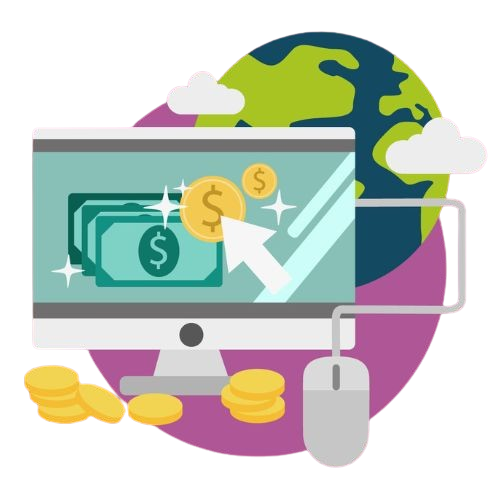Global Payment Processing and Its Importance in 2025

In an increasingly interconnected world, global payment processing has become a cornerstone for businesses looking to expand their reach beyond borders. As the digital economy grows and consumer behavior evolves, businesses need a reliable way to accept payments from customers across the globe. This need is driving the demand for global payment processing solutions. In this blog, we will explore the importance of global payment processing in 2025 and why businesses should prioritize adopting these solutions to remain competitive.
What Is Global Payment Processing?
Global payment processing refers to the system through which businesses accept payments from international customers in multiple currencies. It allows merchants to securely process transactions, handle currency conversion, and manage payments from different regions. The ability to accept payments from a global customer base is crucial for companies looking to grow their operations, especially in a digital-first world.
In 2025, global payment processing will continue to evolve, with businesses seeking solutions that are not only efficient but also compliant with international standards and regulations. For businesses expanding into new markets or handling international sales, implementing a global payment system can help streamline operations and create a more convenient experience for customers.
The Growing Need for Global Payment Solutions
As more businesses adopt e-commerce and operate online, the need for global payment solutions becomes even more pressing. In 2025, the number of digital payments is expected to rise significantly as consumers continue to shift away from cash transactions in favor of secure online payments.
Global payment processing allows businesses to tap into international markets and offer their products and services to customers worldwide. Whether it’s an online retailer expanding into Europe or a software company offering subscriptions to clients in Asia, global payment systems enable businesses to accommodate international customers with ease.
Moreover, offering global payment options provides businesses with the ability to increase sales and enhance customer satisfaction. By supporting payments in various currencies, businesses can make the purchasing process more convenient for international customers, leading to higher conversion rates and a broader customer base.
Benefits of Global Payment Processing
1. Access to a Global Customer Base
By implementing global payment processing solutions, businesses gain access to customers from around the world. This expanded reach is invaluable in today’s digital economy, where even small businesses can engage with customers from different countries. Whether you're a startup or an established enterprise, global payment processing opens up new revenue streams and offers the chance to scale operations internationally.
2. Currency Flexibility
One of the primary advantages of global payment processing is the ability to accept payments in multiple currencies. This allows businesses to avoid the complexities of manual currency conversion and reduces the risk of exchange rate fluctuations. With payment processors that support multiple currencies, businesses can seamlessly conduct transactions in the local currencies of their international customers, improving the overall customer experience.
3. Improved Customer Experience
Global payment processing is designed to make the payment process as smooth as possible for both merchants and customers. By providing customers with familiar payment options, businesses can reduce cart abandonment rates and create a more user-friendly checkout experience. Customers will appreciate the ability to pay in their preferred currency and method, which can improve their perception of your brand and increase loyalty.
4. Regulatory Compliance
As businesses expand internationally, they must comply with various financial regulations and standards. Global payment processors help businesses navigate the complexities of international payment laws, offering solutions that meet the required security, privacy, and compliance standards. For example, payment processors that comply with PCI-DSS regulations help protect customer data, which is essential for businesses operating in regions with stringent data protection laws.
5. Reduced Fraud Risks
Fraud prevention is a significant concern for businesses operating in multiple regions. Global payment processors offer enhanced security features that reduce the risk of fraud, such as tokenization, encryption, and real-time transaction monitoring. These features help businesses detect fraudulent activity and minimize chargebacks, which can be particularly high in global transactions. In 2025, as cyber threats become more sophisticated, investing in secure payment processing will be critical for protecting both the business and the customer.
The Future of Global Payment Processing
As we move into 2025, global payment processing will continue to evolve to meet the needs of businesses and consumers alike. New technologies, such as blockchain and artificial intelligence, are expected to play a significant role in shaping the future of global payments. These technologies offer opportunities to further streamline the payment process, reduce costs, and increase transparency.
Blockchain technology, for instance, can facilitate cross-border payments with lower fees and faster transaction times, making it an attractive option for businesses engaged in global commerce. Similarly, AI-powered fraud detection systems will continue to improve the security of global transactions, helping businesses stay one step ahead of cybercriminals.
As digital payment systems become more advanced, businesses must adapt to stay competitive. Companies that invest in robust global payment processing solutions will be better positioned to handle the demands of the global market and provide an exceptional experience for their international customers.
Conclusion
Global payment processing is not just a convenience for businesses in 2025—it is a necessity. With the world becoming increasingly interconnected, businesses must adopt secure and efficient global payment solutions to stay competitive. By offering flexible payment options, supporting multiple currencies, and ensuring regulatory compliance, global payment processing systems enable businesses to tap into new markets, reduce fraud risks, and improve customer satisfaction. In the coming years, businesses that prioritize global payment processing will be better equipped to thrive in a rapidly evolving digital economy.